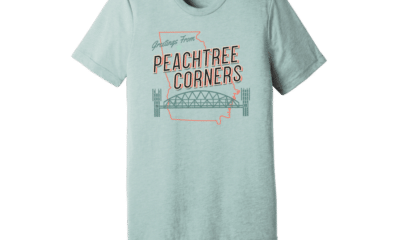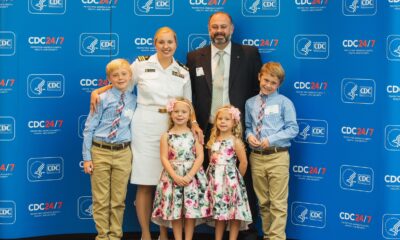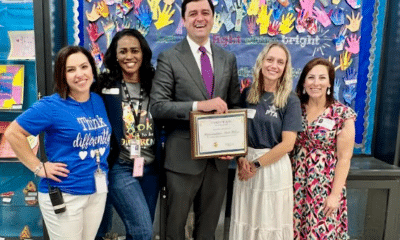Business
Capitalist Sage: Bill Frey’s Architect of Illuminations [Podcast]
Published
6 years agoon
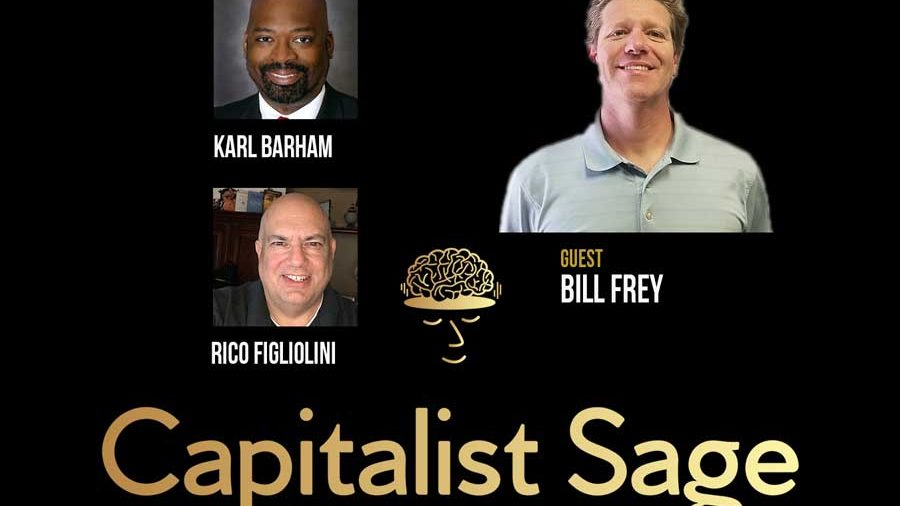
Have you ever wondered who’s in charge of designing and setting up those amazing holiday light displays? Well, this week, Karl and Rico sit down with Bill Frey – entrepreneur and owner of Illuminating Design, a local business event, holiday and specialty lighting company. Bill talks about his path into creating a business and how he found a niche in the holiday lighting market during the 2008 economic recession. Additionally, he shares about his struggles and solutions to working in a seasonal industry, as well as the joys of using his lighting designs to create and evoke holiday memories.
“I like to think about it in a theoretical way, where we really just provide the backdrops of people’s memories. You have your holidays, you have your holiday pictures and all the memories that you have. We’re the lighting behind that. We’re what brings about the emotion, we’re the ones that bring about the feelings of the season. By seeing our lights in different areas, it really brings about that Christmas spirit and gets people in the mood – whether they need to shop or come in and spend more time with their family – again, to create those memories. And that’s – that’s really the main point of where – what we do and what we like to do.”
Bill frey

Resources:
Illuminating Designs
Website: https://www.illuminating-design.com/
Facebook: https://www.facebook.com/IlluminatingDesign/
Instagram: https://www.instagram.com/illuminating_design/
Phone: 404-454-8944
Podcast Transcript:
Karl [01:33 ]: Welcome to the Capitalist Sage podcast. We’re here to bring you advice and tips from seasons pros and experts to help you improve your business. I’m Karl Barham with Trans World Business Advisors. My cohost is Rico Figliolini, with Mighty Rockets Digital Marketing and publisher of the Peachtree Corners Magazine. Hey Rico, how are you doing today?
Rico [01:50 ]: Good, Karl. Lots of things going on.
Karl [01:52 ]: Absolutely. Why don’t we start off by introducing some of our fabulous sponsors?
Rico [01:56 ]: Sure. So the first thing I should say is Atlanta Tech Park, which is where we are in this podcast studio. We’re doing the recording here in the city of Peachtree Corners. Atlanta Tech Park is an accelerator, right? Go to from a startup place – that’s the incubator – to an accelerator. That’s the next step for a growing company. And they have, I don’t know, how many thousands of square feet here. But they have enough event facilities, they run workshops, they run things with funding and venture capitalists.
Karl [02:28 ]: Absolutely. There’s a cyber – cyber event coming up I think later on. Thin-tech. It’s coming up later this week. Fabulous stuff to get connected in technology and business community here.
Rico [02:38 ]: That’s Peachtree Corners. So anything you need to fund your business, you can – I mean they do some of that pitch stuff.
Karl [02:44 ]: Yup – Friday morning. Pitch Fridays.
Rico 02:46 []: So then our other sponsor is GMC, or Gwinnett Medical. Just got bought out by Northside Hospitals, by the way. So – but it’s the place that just opened. It’s the GMC Primary Care and Specialty Center on Peachtree Parkway, next to Planet Smoothie and QT. And it’s a great place. We just interviewed Dr. Barbara Joy Jones just last week. Find our podcast, by the way, online. But they’re a sponsor as well.
Karl [03:11 ]: Oh, fabulous, fabulous. And I think in the next week we have –
Rico [03:15 ]: Smart City Expo.
Karl [03:17 ]: Smart City Expo coming up. I’m excited about that.
Rico [03:19 ]: It’s going to be great. You, me, Patricia Wenzburg, who’s a writer for Peachtree Corners Magazine. We’re all going to be attending that expo.
Karl [03:27 ]: Absolutely. And it’s kind of going to be looking at smart technologies and cities. And I think Peachtree Corners is going to be featured there.
Rico [03:35 ]: That’s right. So the first day, which is the 11th. It’s the 11th, 12th, and 13th. So the first day is gonna be – we’re gonna have – and it’s probably, I think it’s the only off-demo site for that expo. And there are gonna be people from all over the world and the country visiting, and we’re gonna be showing off our 1.5 mile autonomous vehicle track. Along with a couple of special surprises and stuff like that going on. But there’s quite a few things. I mean, we – to be having that in this city when they do a world conference of this in Barcelona. First time in the United States, so…
Karl [04:12 ]: So much fun stuff happening here. Curiosity Lab at Peachtree Corners highlighting technology, showing how a city can continue to grow and innovate on itself. And one other thing that’s great about this business community here – we’ve got lots of entrepreneurs in the business community, and today we’re just – it’s an absolute pleasure to have Bill Frey from Illuminating Design – a local entrepreneur, business owner here – that combines technology and art to create amazing lighting displays for holiday seasons, for a variety of cities, commercial customers. Just help them really celebrate the holiday season or whatever festivity they may be having through innovative lighting displays and design and display. So really glad to have you, Bill. Tell us a little bit about how you do that and how you’re able to make clients super happy with their displays and help attract people to come see them. Why don’t we start by you telling us a little bit about yourself?
Bill [05:18 ]: Alright. Well first of all, thank you for having me. I appreciate the time and being out here. This is a great thing that you guys do, and I’m very happy to be a part of it. Well – I graduated from Clemson University and went back to Georgia State to get a Masters degree in marketing, and found that the corporate world wasn’t really for me. I had the advantage of being in a management position at a very young age, however, when you’re dealing with people that are older and have been in the work environment a lot longer than you have, they tend not to take your ideas so seriously. So at that point, I’d always knew I wanted to be an entrepreneur, and that kind of pushed me to do it. I was young, didn’t have any kids, didn’t have a family, didn’t have any responsibilities, so I was able to easily take the jump. I worked for a gentlemen that had a holiday lighting company and saw an opportunity where the market really wasn’t being taken care of. So opportunities for better customer service, better pricing, and really just a better know how on doing the holiday and event lighting. There were a lot of missed opportunities before, and this is back in 2004, so back then, there were maybe a handful of companies out there. Now, recently, there’s been more people jumping into the industry because they see what a good industry can be and the opportunities that are there.
Karl [06:38 ]: Fabulous. Well, for those that do not know, describe what holiday lighting is and how businesses like yours help clients.
Bill [06:45 ]: Well, in – I like to think about it in a theoretical way, where we really just provide the backdrops of people’s memories. You have your holidays, you have your holiday pictures and all the memories that you have. We’re the lighting behind that. We’re what brings about the emotion, we’re the ones that bring about the feelings of the season. By seeing our lights in different areas, it really brings about that Christmas spirit and gets people in the mood – whether they need to shop or come in and spend more time with their family – again, to create those memories. And that’s – that’s really the main point of where – what we do and what we like to do.
Karl [07:25 ]: So what made you choose to go into this industry? You saw – you worked for a company that did that before, but how did you feel that you could make it different or make a difference in this industry?
Bill [07:36 ]: Umm, for a long time, it was kind of like, Henry Ford’s saying – “You can have any color, as long as you want it black.” And that’s not really the way the design and the lighting goes. We saw – if you drive up and down, and you look at different Christmas displays and holiday displays, a lot of them are very similar. They use the same products, same techniques, and we found ways to be a little more creative. To use an artistic side to it. To add pops of color here and there. To add different elements that people wouldn’t necessarily think of. By being Christmas – 365 days a year, versus the other companies that are really doing it as seasonal job, we have the ability to research and work with worldwide vendors, find the best products, and really find what suits you. As a client. We don’t – we use multiple vendors, and we find the best fit for the client. We don’t lock you into proprietary software. We use all open-sourced software. And it’s really giving the client the options again. Giving them their voice in what they want. And a lot of people might not know what their voice should be saying, but we help bring it out what they want. So we have about 20 questions or so that we start our conversations with our clients to get them to kind of relax a little bit and to get into their own design mind and what they like. Are they symmetric people? Do they like the right and left to balance? Do they want – do they want heavily daytime decor? Do they want nighttime decor? Are they a less is more person? A more is more person?
Rico [09:07 ]: Do you have the things, like – also, like – you know how the fireworks, you can do that electronically now? Is it all app-based? How do you set up on something like that?
Bill [09:17 ]: There are some app based programs. What we find is a lot of those are limited. We actually use a program for our programming side – an open source software called x-lights. It’s based loosely on, my opinion, it’s based loosely on madrix, which is used for stage lighting. And that’s what I originally started with. So our philosophy is – we take the stage lighting and event lighting and everything and bring that into holiday shows. We go to concerts and say, “You know what, that’s cool. We like that. How can we bring that out? How can we make that relate to the holidays?”
Rico [09:52 ]: So you’re creating as you’re going, almost in a way – because every year it’s a little different?
Bill [09:58 ]: Right. And that’s the one thing that we want. Our philosophy is that, if you dream it, we can make it happen. And that’s what we try to do. We’ve had some wild concepts come to us that we’re working through – a fun project we’re working on now is, we’re working with a couple of people to create art pieces with LED background lighting for it. So they actually, as you’re – it’s not a stagnant picture any longer. So you’ll have color flashes that’ll change. Say, it’s a series of umbrellas, and the umbrella will change colors.
Rico [10:25 ]: So you find the technology useful? I mean, you’ve been in the business for a while and stuff. Has technology helped you do your work better, do you think?
Bill [10:33 ]: I think so. I think it’s really cool, some of the stuff that we’re putting out. We work with – on one of our big displays, we made – gosh there were 15 by 25 foot light panels that we broadcast massive displays across. So imagery, and it’s the motion and imagery. So it’s not as stagnant. It used to be the only movement you had was twinkle lights. Every now and then, one would twinkle in. If you had your strand of incandescents, put the wrong bulb in, they all start twinkling on you. They didn’t like that.
Rico [11:04 ]: Do you do other things besides the lighting as well? Like mechanical stuff or other inflatables?
Bill [11:10 ]: Yeah. Some of the pieces we have, we can add motion to it if need be. Haven’t had the opportunity to – in our warehouse, yes we have plenty of that. Haven’t found the client yet that wants something with that much movement. With more movement comes sometimes more issues, and they’re afraid of that for a short term installation.
Karl [11:29 ]: I remember growing up in New York – we – the Rockefeller Center display was always a centerpiece, and people would, for years, you’d go and visit, and it would attract people to that display. You fast forward 20, 30 years later, you see more places using lighting and holiday kind of spirit to attract people to there. Do you find that clients get a lot of success by investing in these kind of displays to help attract folks?
Bill [11:59 ]: Definitely. It’s funny that you bring up Rockefeller Center, because that is one of the reasons I’m in the business. My grandparents lived in New York, and I would go see it as a child, and it’s one of my fondest memories as a child. And I’ve always said if I get the Rockefeller Center tree, I’d be done.
Rico [12:15 ]: You’ve reached the pinnacle.
Bill [12:17 ]: Yup – I’ve reached the pinnacle. What more can I do at that point? But yeah. We see – you know, it’s interesting because the first exposure I had to that, where it was really helping to increase revenues and things like that was during the recession – 2008. And when I – I noticed a lot of people were cutting back on what they were doing. Obviously, they were concerned about what was going on in the world, and with the market and everything like that. But what it did was allow me to kind of recenter our company and to see what’s going on out in the world. And neighborhood fronts – you had homes that were diminishing massively in value, and people were fighting against each other to sell their houses. So the first exposure was – we started decorating neighborhoods – neighborhood fronts. And by giving the exposure to those neighborhoods, it gave them more name recognition, allowed the home values to – I’m not gonna say they stayed where they were in 2006, but they did not decrease as much because you had the talk about – the word of mouth going around about what they were doing, and that the community looked nicer. People were doing a lot of cutting back, so we worked for our clients at those points to allow them to have that exposure. And also – you see a definitive difference in shopping centers. You know when you go out during the holidays, a shopping center that is not decorated, it’s like any other time of the year. You go in there, you spend what you would. Holidays are all about excess, you know? And that’s for – a lot of people it’s about, they eat too much, they shop too much, they drink too much. They do everything too much. And that’s what – having the lighting really evokes that feeling of peace and euphoria and good times and cheers.
Karl [13:58 ]: Especially, during the holiday season, if you think about, if you live up north where it’s snow, you feel Christmas coming around, you feel the holiday. If you live in warmer climate, you don’t have the snow, so the lights is something that could still connect people, that you could tell it’s a different time of year. If you have little kids, I know during the winter, people don’t go out as much. But if they’ll drive around the neighborhoods and see the houses that are doing better displays –
Rico [14:27 ]: So do you find then that – because I totally agree with you. Living in New York or Brooklyn, everyone hung their lights and stuff, but it didn’t matter. If it snowed, it was Christmas – you knew it was coming. Down here, it’s so different. The hurricane’s coming, God forbid. So, but, you know, your lighting during – are you lighting throughout the year as well?
Bill [14:46 ]: We do most of our work during the holiday season. We do still work with events and facilities and things. If they have larger events going on, we’ll go out and help them. What we can do is year round. We’ve really created a niche in the Christmas market, though. We’ve worked on some of the largest areas around the Southeast. And we have really made our names for ourselves in the Christmas area. There are a lot of companies out there that do events. They have a lot of big products, and it’s kind of a different product base that we have, but it is still possible. We have a lot – maybe 50% of it transfers over, which allows us the opportunity to go and decorate for some weddings, or big corporate parties or Fourth of July. We got to go up to – one of the really neat things we got to do is, we went up to Knoxville and lit up the Sun Sphere for the World’s Fair. It was, I want to say, their 250th anniversary. And we had the lights rotate around, red white and blue, and they rotate around the Sun Sphere. It just happened to be the year that Pat Summit passed away, and we were able to dial in the Tennessee orange and light up the Sun Sphere in honor of her, which is a really, really neat and impactful moment for us.
Karl [15:56 ]: How did you get command over the technology? Cause it sounds like you gotta know a little bit about design – artistic design – but also to program, to figure out what pieces to go together, to integrate and all that.
Bill [16:11 ]: You hire the right people. To be honest with you. I dabble in the programming. I like to say I’m good at it, but I brought somebody into the company that has extensive background in it, and he – Tim Griffith – and he is phenomenal at what he does. And he – we work together, and it’s very – it’s kind of we’re yin and yang. I’m the artistic side, he’s the detailed process side. So we balance off each other in very, very great ways.
Rico [16:40 ]: So you can envision what you want, and he sort of implements it.
Bill [16:44 ]: Yeah. I come to him all the time and say, “I wanna see this!” And he kinda looks at me and goes, “Alright, give me an hour.” And it’s great, because you know, it takes him out of his comfort zone and I’m asking for elaborate things, and we kind of bounce ideas off, and I know enough to give suggestions about different ways to look at it rather than the engineering side. Look at it from this direction, see if it changes some things.
Rico [17:07 ]: Are you seeing the technology and lighting itself? Like, LED’s been around for a while, right? Are you seeing that changing? Are you seeing anything new coming out?
Bill [17:16 ]: Actually, yeah. And that’s one of the things that’s – and we’ve had to kind of adapt our company because of it. It’s, you know, LED’s – incandescents and LEDs are the first change in lighting in how many years? Forever. So then, so what do you think? Okay, well LEDs are gonna be here for a while, and this is how it’s gonna be. Well now they’re moving onto low voltage. So low voltage gives you – obviously, you’re running less amps, thus you’re having less – when you have a power spike because of rain or something like that, there’s less fluctuation. So it doesn’t trip your GFI. So low voltage lighting is exactly which landscape lighting runs on. So you don’t have problems with that normally when it rains, but your holiday lights, occasionally you do. And that’s honestly a problem. If you have a GFI, and it’s put in there, and it’s working right, and your lights go out because of rain, it’s doing exactly what it’s supposed to. But nobody wants their lights out. And you can’t tell somebody – “Well, you know what? Sorry your lights are out, but that’s doing exactly what you want.” So we figure out ways to work around that. And we at – when we were working at Atlanta Botanical Gardens for four years, we had – I’ll never say 100%. So, 99.999% on rate. I don’t – I cannot remember or do not recall or was not told of any situation when the lights went out with low voltage.
Karl [18:31 ]: So you can use technology to help make them more robust and bring all that. When you think about the business side of this, when you started this out, anything that you learned along the way that you think would help someone else that was thinking of starting a business?
Bill [18:46 ]: Yes. A 22 year old does not know everything. I learned that one very quickly. And, you know, you learn to trust your support system. And that’s the foundation of how you’re gonna be successful in business. If you don’t have a strong support system with you, with family, friends, people that believe in you and are going to pick you up when you get knocked down and say, “You know what? Let’s get up tomorrow and try again.” That’s crucial. If you don’t have that, you’re off on an island. And it becomes extremely difficult.
Karl [19:17 ]: What is it like doing business here in Georgia or at least in this part of Georgia area? Have you found there being any advantages of being in a community like Peachtree Corners?
Bill [19:28 ]: Yeah. Well, one, it’s a newer city. So there’s a lot that the city’s doing that we can help out with. We’re actually working in the new City Center this year, which will be great. We’re very happy about that. I was actually – as soon as I heard it was starting to be built, I started calling. Because it’s a project I wanted to be part of. To me, the community is important. The community’s giving me, myself, my family so many opportunities. My children go to school here. Their friends go to school. I coach soccer here. So being part of this community is a great, great thing. I even moved my office here from Norcross so we’d be a little more local and tied more into the business community in Peachtree Corners.
Rico [20:08 ]: Are you part of any of the business associations here locally?
Bill [20:11 ]: Yes.
Rico [20:12 ]: What are some of the things you’ve been able to gain through a relationship you’ve built through those?
Bill [20:16 ]: Some contacts. That’s really important. You find out – moreso business contacts, it’s personal contacts. People who have gone through what you do. As an entrepreneur, it’s very difficult for people to understand your day to day. What you wake up dealing with, what you go to bed dealing with. What problems you have. And you know what? None of us here are recreating the wheel. Whatever business process we’re working on – whatever situation we’re dealing with – somebody else has dealt with. We’re not the first ones to go through it, so why not ask for feedback? Why not say, “Hey, let’s go get coffee. Let’s talk about a couple things. What’s troubling you? What’s troubling me? What can we help each other work through?” And you never know who’s gonna have that opinion or that little nugget of advice that really helps you out.
Rico [21:03 ]: Let me ask you something, if you don’t mind. It’s a seasonal business. So the one thing that struck me – like urban growers, you know? They have the cycle – the season. Although they, if I remember, they said there’s really no season because they can keep growing throughout the year. How does that work in a business where it’s more seasonal? How does that impact revenue, income – how do you budget the company out? How do you keep staff where they need to be, I guess?
Bill [21:30 ]: That’s one of the harder pieces. That’s – if I knew all the answers to that, it would uber successful. You know, we’re not doing bad. But, it is difficult. The seasonality of the business makes it difficult for staffing. You have – so what we do is, we have a core group of people. That those are our people that we bring in. Then, we wind up bringing in revenue producers that – the guys are doing the actual install. But we bring the team of leaders in before that. We spend about a month with them and training them on what we are, who we are, going around and seeing the jobs. So we catch them up to speed on what’s being produced. Then we bring the next team in and do our OSHA training and those things. So, a lot of times, it’s recreating the wheel each time. It’s restarting the process each year. But we’re fortunate enough that each year, we have some residual people that come back. We try to find business owners that may have another business. That their seasonality goes a little bit lower in time, so we kind of work together in that aspect. And you find – you do have a lot of guys that are out of work over the holidays. So generally, finding labor in the actually installers is not that difficult. Because you have all the other season out – like, the non-winter jobs – pool companies, painters, landscapers, that aren’t doing as much. They all lay off, we hire them in.
Karl [22:51 ]: I’m curious, you know, if you were to advise – whether it’s neighborhood that’s deciding holiday lighting or retail areas and so on. What are top things they should consider if they’re thinking on doing this? Where do people get it wrong? When you go out there and you look at people trying to do it, what do they get wrong about it?
Bill [23:11 ]: A lot of the time, it – you wind up with inconsistencies. Where it doesn’t – it doesn’t flow. There’s – it kind of, it’s sporadic, where they’re not actually – they’re saying, “Okay, let’s light every tree.” Well, lighting every tree, while nice, doesn’t always give you the best visual impact. I like to work in negative space. So it’s not where the light is, it’s where the light is not. Because if you constantly have a wall of light, it’s a blur. It doesn’t give a good visual image. If you’re selective in what you liked – so really, I guess the answer’s editing – I guess, what exactly to do. Anybody can throw stuff up anywhere, but it’s systematic in that type of editing in the overall design that makes everything better. And the consistency in the products. You can’t have one color bow in one area, another color in another area. Or have weird colors. If – I’ve noticed a lot, they try to go with festive colors and things like that now. But it starts looking a little like Mardi Gras. Which is awesome for the Mardi Gras time, but it doesn’t really flow with what most people think of Christmas.
Karl [24:17 ]: And things that will create those memories that you were describing. If you do a blur of lights, it just remembers it’s a blur. But if you can create art with that and create it, that’s what create memories.
Bill [24:29 ]: Our lighting philosophy is, we believe every light is important. You can make a very impactful statement with a single light. So it’s all in the editing of how you edit those lights down.
Karl [24:38 ]: Fabulous, fabulous. Well, I’m curious, you know – as this time of year, we’re getting into the fall season. What’s it like for you this time of year? What do you have coming up? What do you do over the next few months as you gear up for the holiday season?
Bill [24:52 ]: First thing is not sleep. It’s – this is really the busy time. But we’ve set ourselves up over the past few months, and basically, since we’ve finished last year to be ready. So we’ve dotted all the i’s, crossed all the t’s. We’re just ready to go now. We have – we’ve tested all the products. We’re gonna be out. Within the next month or so, we’re gonna be working on some of the bigger installations. We’re gonna be at the battery for the Atlanta Braves, decorating out there. We’ll be building a 35-foot walkthrough ornament at World of Coca Cola. And working on some of the really large displays downtown Atlanta. We put all the garland on Peachtree street. So really finalizing what we’ve worked on for so long. It’s – you’ve had your spring training, and now it’s time to get to action.
Karl [25:41 ]: You remember when Christmas season used to start the week after Thanksgiving? And now, I remember – I think in August, I saw Halloween stuff start to show up, and I’m pretty sure it’s happening with the season. When is Christmas really starting now? Is it October? Early November?
Bill [26:02 ]: November 1st is when a lot of the turn on dates. And you know – it’s understandable. If they’re spending good money on the displays, it makes sense. Go ahead and get them up. Yes, it mixes Thanksgiving and Christmas. But the idea is to spread the joy. To get people out there.
Karl [26:19 ]: So if they’re starting November 1st, that means if you want to have a spectacular display, you probably should be starting now having conversations with folks like you.
Bill [26:28 ]: Very much so. If not a few weeks ago. We’re – it’s time now. We’re locking in most of our bigger installations. And there are still some slots open that we’ll take as we go through. But yeah, there’s plenty of opportunity to still get decorated and for us to work with you.
Karl [26:45 ]: Fabulous. So how do people reach you? If they want to know more about what you do and how you do it, what’s the best way to reach you?
Bill [26:50 ]: First thing I suggest is to go onto our website and take a look at some of the projects we’ve done. See if it’s something you’d like to do and see if there – we can work together. We like to create a union with our clients. It’s – we’re not a one and done type company. We like to create relationships. So go onto the webpage. It’s www.illuminating-design.com. Or you can give us a call at 404-454-8944.
Rico [27:25 ]: We can also find you on instagram on @illumin. I’m assuming there’s lots of pictures there too.
Bill [27:32 ]: Yes there are.
Karl [27:33 ]: Fabulous. Well it’s great to see a local company here in Peachtree Corners. Entrepreneurs that are doing really fun business. I gotta imagine, when you complete a project, you get a big smile on your face, on your client. Who doesn’t like a business that helps create smiles?
Bill [27:48 ]: Oh, it’s amazing. It’s absolutely amazing.
Karl [27:50 ]: It’s fabulous for that. We want to thank you for being our guest today. Bill Frey, from Illuminating Design for being our guest. Taking time out and sharing your experience and journey on this, and giving some advice to folks that are looking to start in their own businesses that may not be as traditional as others. Maybe taking a different look in providing a different service for clients. And we also want to thank Atlanta Tech Park for hosting the Capitalist Sage podcast. If you’re starting a business and looking to network with other people, like minded folks in there, there’s no better place to start in a community designed around supporting entrepreneurs and business owners. I’m Karl Barham with Transworld Business Advisors of Atlanta Peachtree. We help people – help business owners understand their business. When they’re ready to sell their business, when they’re ready to buy a business, when they’re ready to grow their business. We offer services to help them all throughout their business life cycle. And Rico – why don’t you tell them a little bit about what you’ve got going on?
Rico [28:49 ]: Sure. I publish Peachtree Corners Magazine. Just launched that this year. Cities – hopefully of what’s going on in the city on a bi-monthly business. We’ve got a lot of traction on it. We’re planning the three major stories that are coming in this forthcoming issues. One is – the cover story is a Pat and the People story. So submit your – this can be a contest giveaway starting Friday. You’ll find that on Facebook. So we’re gonna be giving away some prizes. But that’s one of the main features. The other one is Great Spaces for your Corporate and Holiday Events. We have a writer out there, and she’s already on the 8th or 9th or maybe 10th place. So she’s putting out there – she’s putting together the article as well. But that’s Patricia Windspur. And we have a third piece on technology in the school system, which is cool. So the magazine, of course, you can find my work also at MightyRockets.com. I handle social media, social media content, videography, product videos, a whole bunch of things that different types of companies may need. And that’s where you can find me.
Karl [29:54 ]: And follow us on Facebook. Peachtree Corners Life on Facebook if you want to get an update.
Rico [30:00 ]: That’s right. So, like us there because once you like us there, then you get notification of these live Facebook feeds. You can find the podcast, Capitalist Sage, on iTunes, iHeart Radio, Spotify, Stitcher – almost anywhere that – FM, that’s another one – almost anywhere you can find podcasts. Find this, listen to the drive, 25 minutes, and you’re good. And LivinginPeachtreeCorners.com is the website for the magazine, the podcasts, and all that.
Karl [30:28 ]: If you want to keep up with what’s going on, a fabulous job of keeping up, you go in there, you’ll see articles in there, it’ll give you highlights on what’s going on around Peachtree Corners and greater Gwinnett in general. But just lots of ways to get connected back to the community. And please do tune into the Capitalist Sage podcast, and all of the other podcasts that highlight local people in your community. About business owners, political leaders, community leaders, schools.
Rico [30:58 ]: We have two other podcasts – Prime Lunchtime with City Manager which is once a month. And we have Peachtree Corners Life which is a whole host of things, and we do interviews.
Karl [31:08 ]: So thank you very much for tuning in, and looking forward to bringing you more great guests on the Capitalist Sage Podcast. Thank you everyone, have a great day.
Related
Business
Peachtree Corners Grows Business Opportunities Through Economic Development
Published
4 days agoon
May 6, 2025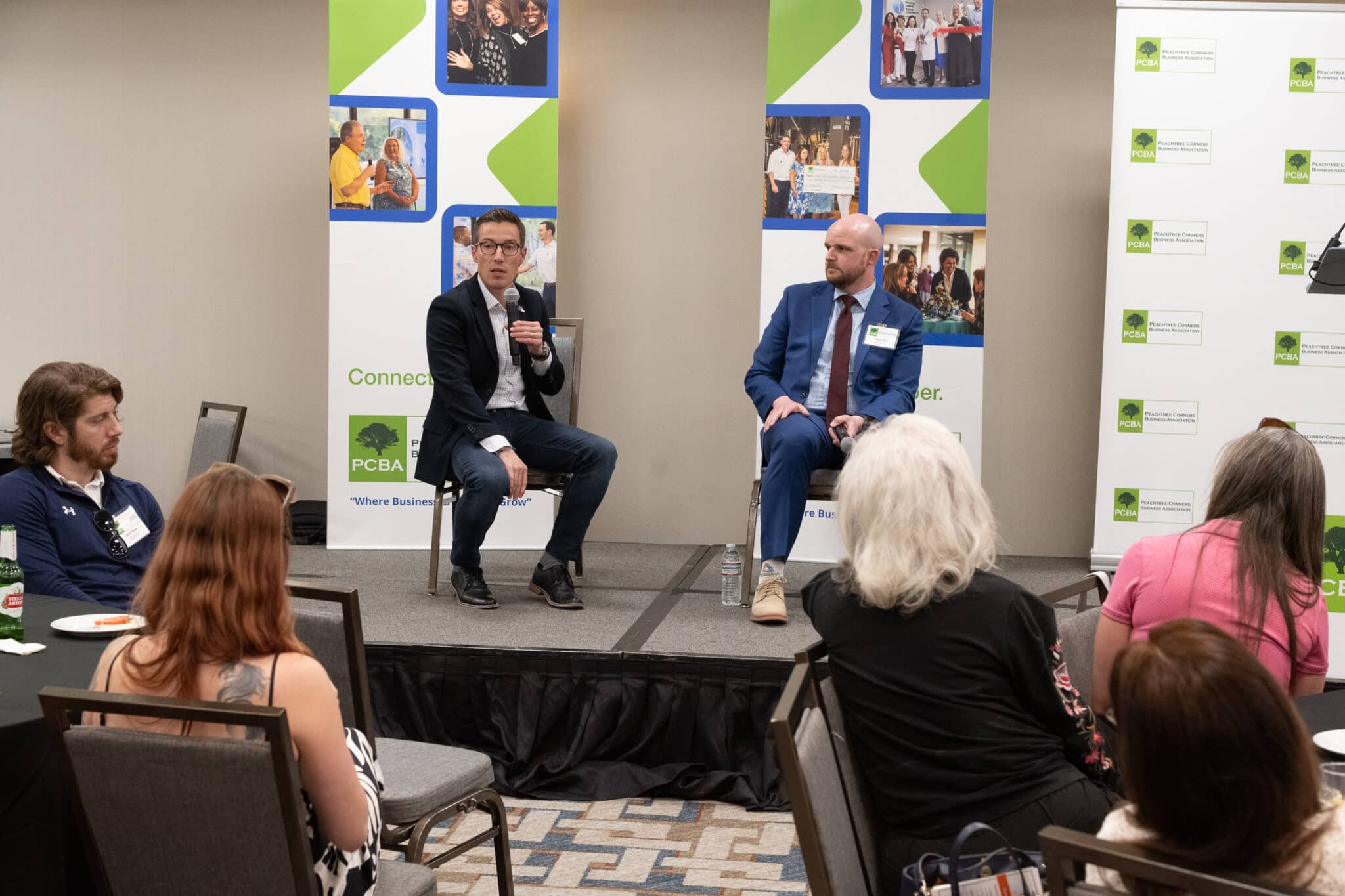
Most residents and business owners in Peachtree Corners probably think they know all about the economic development and strategic planning of Peachtree Corners, but do they really?
Peachtree Corners Business Association invited Peachtree Corners Economic Development Director Betrand Lapoire and Partnership Gwinnett Director of Economic Development Andrew Hickey to its After Hours Speaker Series on March 27 to discuss the city’s growth from a 1971 master plan to a bustling city with 42,000 inhabitants and 40,000 jobs.
Key points included the importance of business retention and expansion, with 24 projects last year creating 1,600 retained jobs, 1,600 new jobs and $250 million in new capital investment.
The Curiosity Lab, a world-class innovation center, was emphasized as a significant attraction. The city’s zoning and infrastructure plans were also discussed, focusing on balancing office and residential development to maintain a vibrant, sustainable community.
Matching jobs to residents
Although Peachtree Corners is just a teenager in terms of being an incorporated city, the foundation for this vibrant, fast-paced economic hub was laid more than 50 years ago by technology pioneer Paul Duke.
“Peachtree Corners was the first master-planned, business innovation technology park in metro Atlanta,” said Lapoire. “It was in response to the brain drain of technology with Georgia Tech graduates leaving the area.”
While the city may have a small-town feel, it’s the largest in Gwinnett County by population, but not land mass, he added.
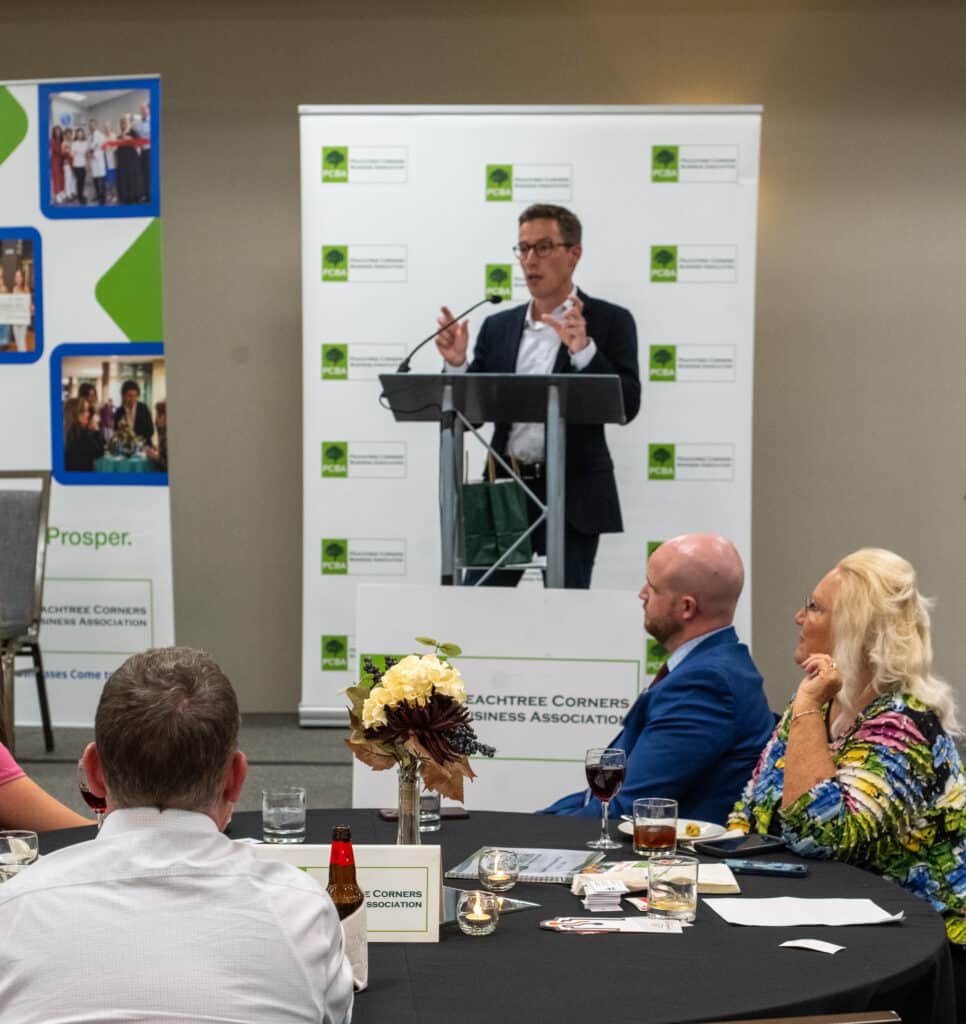
“The city started from a commercial, industrial, R&D base and then was expanded around it,” said Lapoire.
Though home to more than 42,000 residents, most of the jobs in Peachtree Corners are filled by people who live outside the city, he added.
“So we have this interesting mismatch, in a way, although not unusual,” said LaPoire. That creates traffic and transit issues. So that means that one of the solutions is to create more jobs here to fit the profile of the community.”
He presented charts that show professional services, consulting and engineering as the largest job categories. The next tier of businesses are wholesale and manufacturing.
“So we have a good mix of industry,” he said.
A five-year plan
The city has a five-year economic development plan (2023-2028) that outlines strategies for attracting and retaining businesses, with education and workforce development being key components.
Partnership Gwinnett has similar goals as Peachtree Corners, but on a larger scale.
“We are the county’s sales and marketing arm for all 17 cities now, and we receive funding from both municipal sources as well as existing businesses here — both in Gwinnett and outside of Gwinnett as well,” said Hickey.
He shared how Partnership Gwinnett is designed to drive a lot of major corporations toward doing business inside and with Gwinnett County.
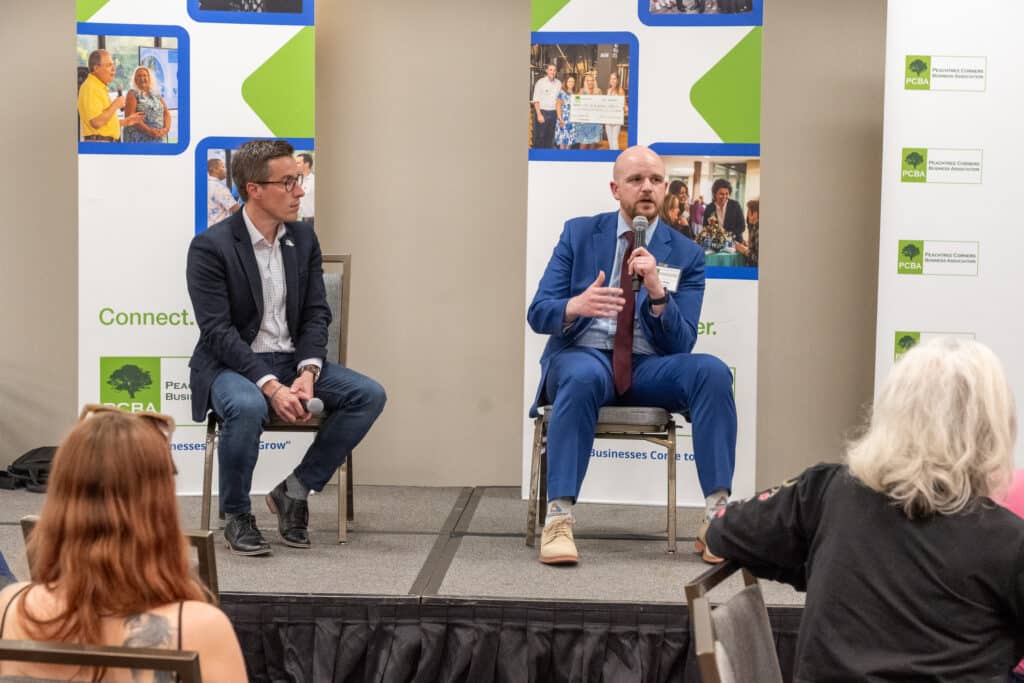
“One of the biggest things that we talk about that I’m sure it seems like most of us here, if you live here, you work here, you understand it. It’s the diversity that exists here in Gwinnett,” he said. “With a diversity index of 85, that means if we walk out of the Hilton here and we say hello to somebody, there’s an 85% chance they’re from a different ethnic or cultural background than ourselves, which to you and I may seem normal because that’s the life that we live in.”
He added that for companies, there’s a tremendous value in that, whether they have stated values, or they’re just making hiring decisions to get a wide range of candidates to fill those roles. Additionally, because of the proximity to Atlanta, Gwinnett County has a great labor draw.
Partnership Gwinnett
Partnership Gwinnett plays a significant role in recruiting businesses, expanding existing companies and developing the workforce. Hickey showed how the organization was involved with more than 24 projects last year.
“A majority of those were expansions, and that is a common thread you’ll see in economic development,” he said. “In business retention, expansion is so vital to working with our existing companies to make sure that they have the resources they need.”
He added that’s what leads to new investment and job creation in the community.
The organization also focuses on redevelopment projects, working with cities and the county to improve infrastructure and community amenities — especially strong educational institutions such Georgia Gwinnett College, Philadelphia College of Osteopathic Medicine and others.
Quality of life
In closing, both men stressed the importance of recruiting companies and developing the workforce, along with one aspect that means a lot but may not be as obvious — quality of life.
“It’s definitely evident that people like to work where they live — the whole live, work play experience,” said Hickey. “I joke that the part that people really have the most questions about, and are most excited to learn about, is new events at The Forum or Gwinnett Place Mall.”
Although they want to know what’s the next major company coming to Gwinnett, people REALLY want to know about how to spend their leisure time.
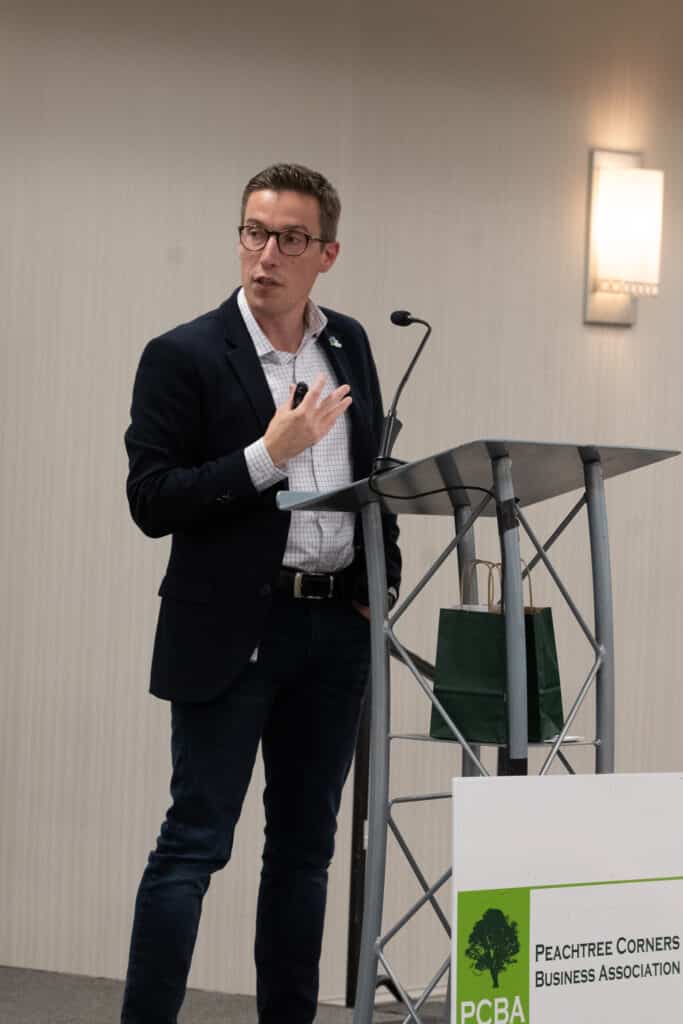
“That speaks to the importance of ensuring that we have a great community,” he said. “So at Partnership Gwinnett we work with all of our cities, and the county government as well, [on] a kind of a best-practices trip.”
He added that the peer tour allows everyone to know what the neighboring communities are doing and share the good news.
“We will take all of these elected officials, but also city staff, to different cities across the Southeast,” he said. “Last year, I believe they went to Huntsville, and have been to Greenville, Chattanooga — all cities that have done some really cool redevelopments that have taken their city to the next level. Our goal is to learn from them.”
Related
Business
Two Peachtree Corners Business Leaders Named Finalists for EY Entrepreneur Award
Published
2 weeks agoon
April 23, 2025
Ernst & Young’s Entrepreneur Of The Year celebrates ambitious entrepreneurs who are shaping the future
Ernst & Young LLP (EY US) recently announced the finalists for the prestigious Entrepreneur Of The Year 2025 Southeast Award, and two local, Peachtree Corners business leaders — David Quirk, president and CEO of DLB Associates Consulting Engineers PC and Erin Hanson, founder and CEO of Guardian Sports — made the list.
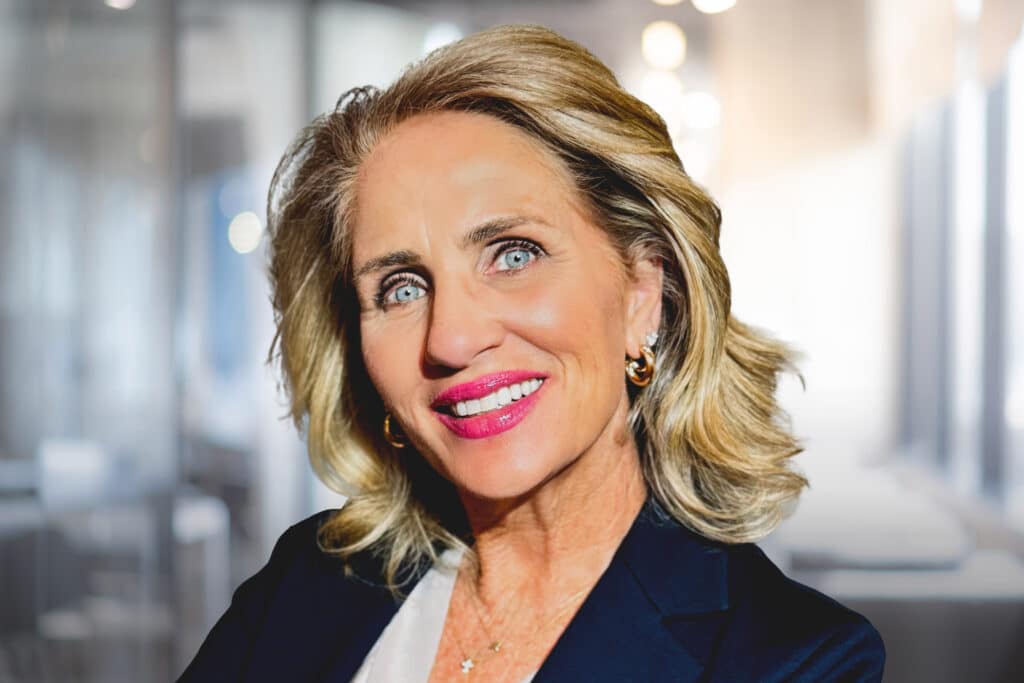
Hanson’s Guardian Sports is a family-owned company dedicated to serving athletes through safety and performance improvements in sports equipment. Major products include the Guardian Cap, PEARL ball and Guardian Infill serving the sports industry.
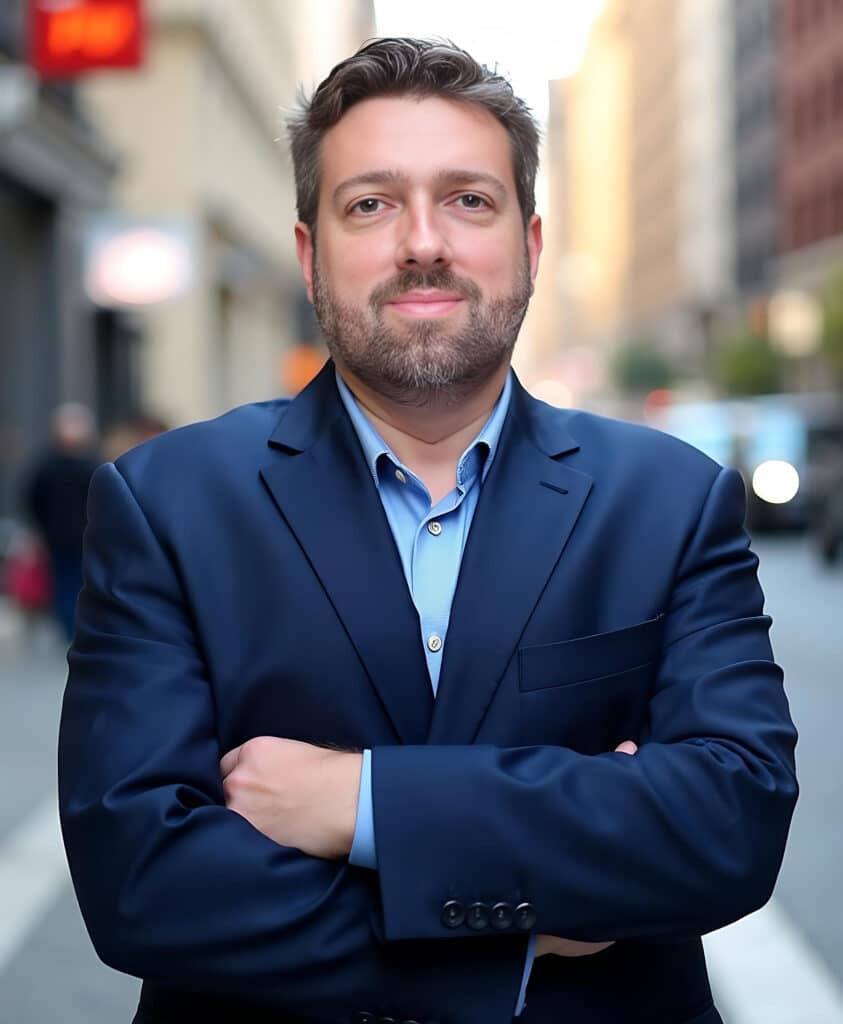
DLB Associates is a U.S.-based consulting engineering firm specializing in mission-critical and complex built environments. With more than 40 years of expertise, DLB delivers innovative, technology-driven solutions in engineering, commissioning and operations worldwide.
Celebrating entrepreneurial leaders
Now in its 40th year, Entrepreneur Of The Year recognizes the bold leaders who disrupt markets through the world’s most ground-breaking companies, revolutionizing industries and making a profound impact on communities. The program honors those entrepreneurs whose innovations shape the future and pave the way for a thriving economy and a hopeful tomorrow.
The Southeast program celebrates entrepreneurs from Alabama, Georgia, North Carolina, South Carolina and Tennessee.
An independent panel of judges selected 36 finalists for their entrepreneurial spirit, purpose, growth and lasting impact in building long-term value.
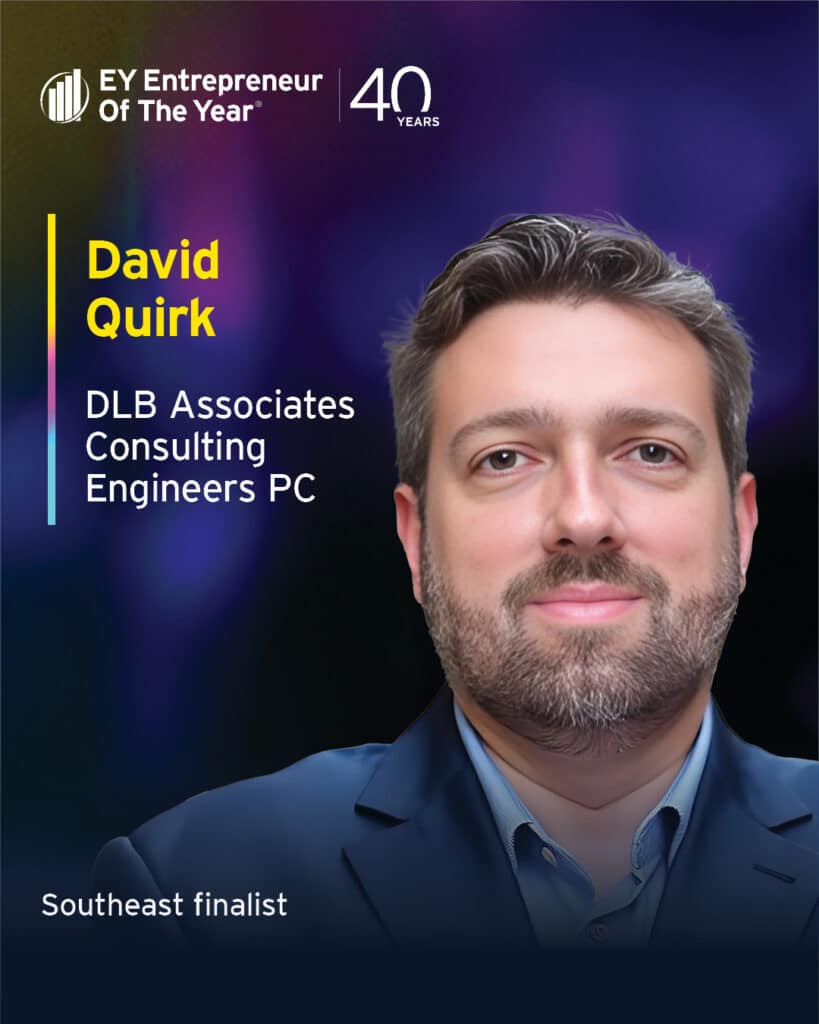
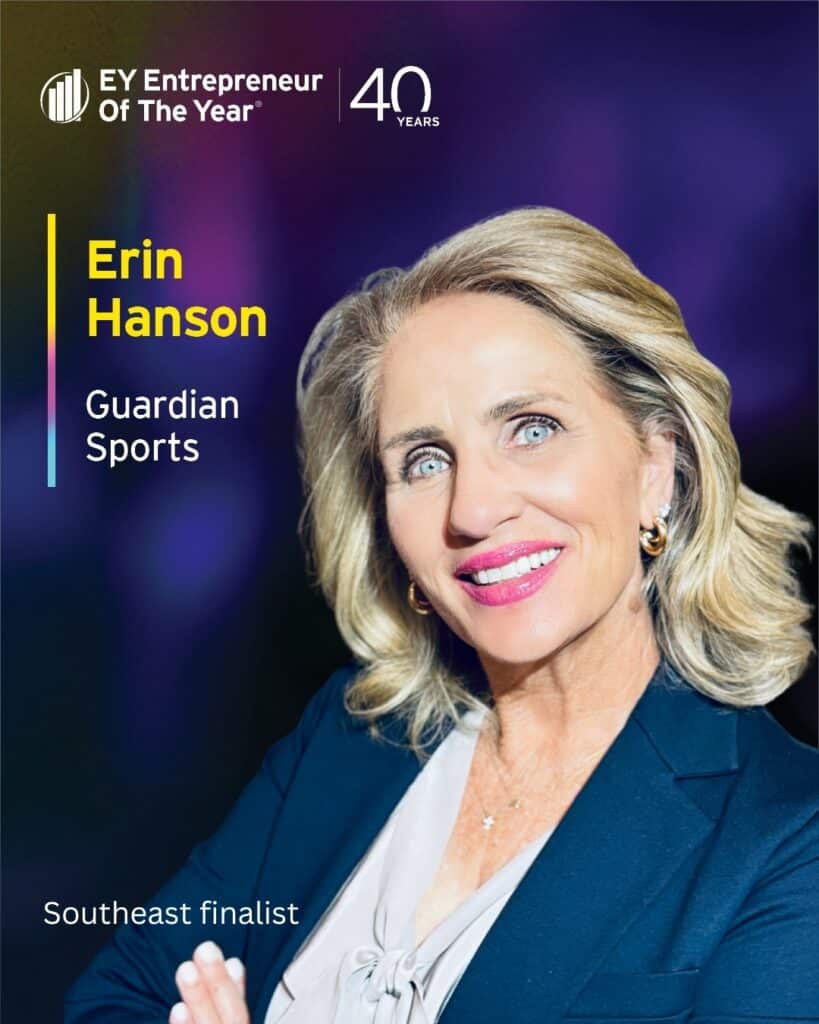
“This year’s finalists are leading examples of innovation, perseverance and resilience, illuminating paths to a brighter future for their industries and communities,” said Chevy Arnold, Entrepreneur Of The Year Southeast Program co-director.
“Their commitment to excellence transforms challenges into opportunities, inspiring us all,” added Kimberly Kicklighter, Entrepreneur Of The Year Southeast Program co-director.
Entrepreneur Of The Year honors many different types of business leaders for their ingenuity, courage and entrepreneurial spirit.
The program showcases original founders who bootstrapped their business from inception or who raised outside capital to grow their company; transformational CEOs who infused innovation into an existing organization to catapult its trajectory; and multigenerational family business leaders who reimagined a legacy business model to strengthen it for the future.
Including Quirk and Hanson, the 2025 Southeast finalists are:
- Marc Hodulich | 29029 | Atlanta, Georgia
- Damon Stafford | Alpine Intel | Charlotte, North Carolina
- Lou Hensley | Aspida | Durham, North Carolina
- Matthew Dent | Buffalo Rock Company | Birmingham, Alabama
- Melanie Little | Colonial Pipeline Company | Alpharetta, Georgia
- Will Bartholomew | D1 Training | Franklin, Tennessee
- Rene Diaz | Diaz Foods | Atlanta, Georgia
- David Quirk | DLB Associates Consulting Engineers PC | Peachtree Corners, Georgia
- Markus Scott | EyeQ Monitoring | Atlanta, Georgia
- Jon Gosier | FilmHedge | Atlanta, Georgia
- John Fitzpatrick | Force Marketing | Atlanta, Georgia
- Dr. Barry Patel | Galt Companies | Atlanta, Georgia
- Dr. Wade Smith | Galt Companies | Atlanta, Georgia
- Charles Gillespie | Gambling.com Group | Charlotte, North Carolina
- Kevin McCrystle | Gambling.com Group | Charlotte, North Carolina
- Mike Griffin | Griffin Brothers Companies | Cornelius, North Carolina
- Erin Hanson | Guardian Sports | Peachtree Corners, Georgia
- Dan Beem | Hissho Sushi | Charlotte, North Carolina
- Aaron Siegel | Home Team BBQ | Charleston, South Carolina
- Marc Murphy | Ignite Digital Services | Charleston, South Carolina
- Miller Chalk | Inglett & Stubbs, LLC | Mableton, Georgia
- Liza Rodewald | Instant Teams | Southern Pines, North Carolina
- Stephen Andresen | McClancy Foods & Flavors | Fort Mill, South Carolina
- Travis LeFever | Mission Mobile Medical Group | Greensboro, North Carolina
- Cyrus Mojdehi | Northway Homes | Charlotte, North Carolina
- Connor Ryan | NutraSky | Alpharetta, Georgia
- Fritz Owens | OTR Solutions | Roswell, Georgia
- Christopher Chuang | Relay, Inc. | Raleigh, North Carolina
- Kurt Jacobus | restor3d, Inc. | Durham, North Carolina
- Tom Kendrot | Shearwater Health | Nashville, Tennessee
- Teak Shore | Southern Lighting Source | Cumberland, Georgia
- Cindy Eckert | Sprout Pharmaceuticals | Raleigh, North Carolina
- Bryan Moore | TalkShopLive Inc. | Nashville, Tennessee
- Tina Moore | TalkShopLive Inc. | Nashville, Tennessee
- Igor Marinelli | Tractian | Atlanta, Georgia
- Joan Butters | Xsolis | Franklin, Tennessee
You can learn more about the finalists at ey.com/en_us/entrepreneur-of-the-year-us/southeast/winners-finalists.
Regional award winners will be announced on June 25 during a special celebration. The winners will then be considered by the national independent panel of judges for the Entrepreneur Of The Year National Awards, which will be presented in November at the annual Strategic Growth Forum®, one of the nation’s most prestigious gatherings of high-growth, market-leading companies.
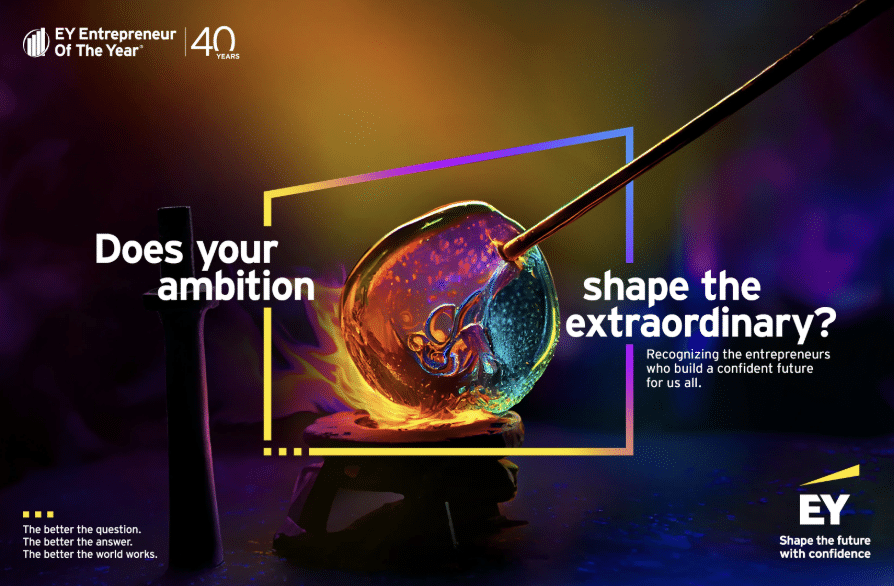
About Entrepreneur Of The Year
Founded in 1986, Entrepreneur Of The Year has celebrated more than 11,000 ambitious visionaries who are leading successful, dynamic businesses in the U.S., and it has since expanded to nearly 60 countries globally.
The U.S. program consists of 17 regional programs whose panels of independent judges select the regional award winners every June. Those winners compete for national recognition at the Strategic Growth Forum® in November where national finalists and award winners are announced.
The overall national winner represents the U.S. at the EY World Entrepreneur Of The Year™ competition.
For more about the award, visit ey.com/us/eoy.
Related
Business
SCB Construction Group Partners with CGA Reps on New Peachtree Corners HQ
Published
4 weeks agoon
April 15, 2025
SCB Construction Group, freshly rebranded from SteelCo, secures construction project with CGA Reps for new office HQ in Peachtree Corners
SCB Construction Group has announced a strategic partnership with CGA Reps to build a new office headquarters in Peachtree Corners. The project, encompassing approximately 26,000 square feet of innovative workspace, marks a significant milestone in advancing CGA Reps’ corporate vision while showcasing SBA Construction Group’s commitment to delivering transformative construction solutions.
In collaboration with Oakley Real Estate Partners — serving as developers of the project on behalf of CGA Reps — this venture reflects a united effort to bring cutting-edge design (from Smallwood architecture firm) and operational excellence to the commercial kitchen equipment industry.
The announcement follows several high-profile projects for SCB Construction Group in 2024, including a 72,500-square-foot manufacturing center and headquarters for Process Equipment & Controls, an impressive interior build-out for Courtesy Ford Conyers’ commercial service center and the Phase 1 completion for StoreEase Loganville — recently honored as a 2024 Smart Facility of the Year by Modern Storage Media.
A bold new chapter for CGA Reps
The new 25,890-square-foot headquarters is designed to be more than just a workplace — it is envisioned as an inspiring environment that serves both client engagements and employee creativity. CGA Reps is recognized as an industry expert in commercial kitchen equipment, representing leading manufacturers, warehousing, distributing and installing everything from fryers to commercial walk-in freezers.
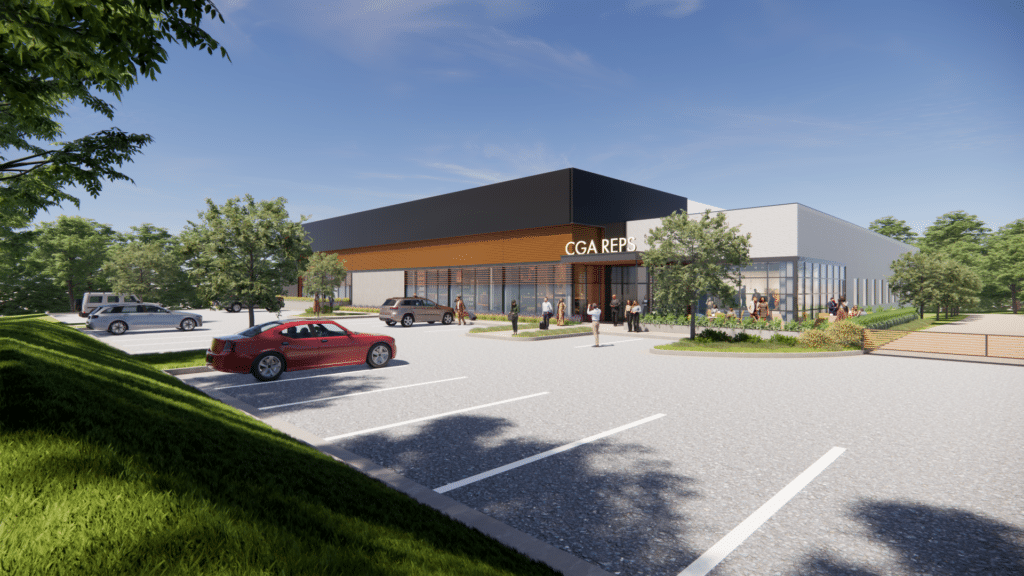
The facility’s design reflects this expertise, featuring a dedicated approximately 9,000-square-foot showroom kitchen that will host equipment demonstrations, tradeshows and webinars. This dynamic space will allow CGA Reps to showcase its comprehensive product range and provide clients with hands-on experiences of the latest commercial kitchen innovations.
A standout feature of the project is its innovative approach to stormwater management. With the site comprising only three acres, sufficient space for a traditional detention pond does not exist. To overcome this challenge, the design includes an underground detention system located beneath the truck court to efficiently handle all stormwater runoff.
This solution not only maximizes the use of the available land but also reinforces CGA Reps’ commitment to sustainable practices.
“We are excited to embark on this project with CGA Reps,” said Jay Bailey, CEO of SCB Construction Group. “This partnership underscores our commitment to customer excellence in design and construction, and it is a testament to the trust our clients place in our ability to deliver projects that not only meet but exceed expectations.”
Delivering excellence through proven expertise
SCB Construction Group’s track record in 2024 has been nothing short of remarkable. Earlier in the year, the company completed a 72,500 square foot manufacturing center for Process Equipment & Controls, integrating office space within a dynamic production facility.
This project was celebrated for its innovative design that balanced operational efficiency with a modern aesthetic, utilizing IMP panels to mimic tilt-up concrete, setting new standards for manufacturing environments.
Similarly, the interior build-out for Courtesy Ford Conyers’ commercial service center demonstrated SCB Construction Group’s ability to transform conventional spaces into functional and attractive environments that cater to both customer and staff needs.
The company’s commitment to quality and precision was again evident in the successful Phase 1 completion for StoreEase Loganville. This project, which recently earned the distinction of a 2024 Smart Facility of the Year by Modern Storage Media, highlights SCB Construction Group’s forward-thinking approach to construction and design, incorporating smart technologies and design that enhance sustainability and operational efficiency.
A rebranding that reflects a vision for the future
In a move that signals its evolution and growth, SCB Construction Group has recently rebranded from its former identity, SteelCo Buildings, as it spins off its construction division. This strategic rebranding is not merely cosmetic — it represents a renewed commitment to capabilities, credibility and client-focused service.
The refreshed brand is anchored by a new tagline “Deep Expertise, High Expectations” and a clear brand promise that communicates the company’s mission: to craft exceptional construction experiences based on precision, innovation and trust.
“Our rebranding is about more than just a new name or logo; it’s a renewed promise to our clients and communities,” explained Robert Lee, marketing director at SCB Construction Group. “We believe that our updated brand identity, including our invigorated tagline and mission statement, encapsulates our dedication to pushing the boundaries of design and construction. It reflects our commitment to creating spaces that are as inspiring as they are functional.”
Transforming spaces to inspire and connect
The new headquarters for CGA Reps is expected to become a landmark facility in Peachtree Corners. Beyond its impressive architectural design and advanced construction techniques, the building is planned as a hub for innovation and collaboration.
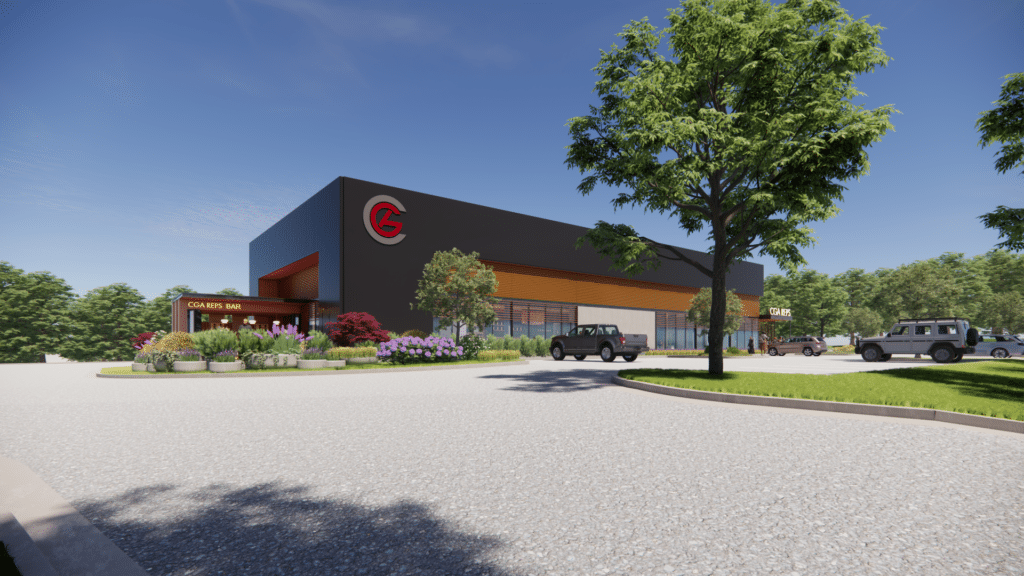
The interior build-out will include dynamic client reception areas, interactive meeting rooms, and dedicated spaces designed to foster creativity and teamwork among employees. The layout is crafted to ensure that every area of the facility contributes to a productive and inspiring work environment.
“By investing in this state-of-the-art facility, CGA Reps is making a strong statement about the future of work,” said Bryan Young, VP of construction at SCB Construction Group. “Our team is dedicated to designing and building spaces that not only serve the immediate needs of our clients but also create environments that motivate and inspire. The new headquarters will be a testament to that vision.”
Looking ahead
The partnership between SCB Construction Group and CGA Reps marks a significant step forward for both companies. As SCB Construction Group continues to build on its legacy of excellence and innovation, this project is poised to set a new benchmark for modern office headquarters design in the region.
With a strategic focus on creating spaces that inspire, connect and drive success, the future looks promising for both SCB Construction Group and its esteemed partner, CGA Reps.
For more information on the new headquarters project or to learn more about SCB Construction Group’s portfolio, visit scbcg.com.
Related
Read the Digital Edition
Subscribe
Keep Up With Peachtree Corners News
Join our mailing list to receive the latest news and updates from our team.
You have Successfully Subscribed!

Katherine Lafourcade — A Journey of Passion, Resilience and Giving Back

GA Tech Launches First-of-its-Kind GT Atrium in Peachtree Corners

Digital Edition

PCBA Announces 2025 Scholarship Winner

Paul Duke STEM High School Student Earns CGO Scholarship

Official City Merchandise Line Debuts This Saturday at Town Green

World Blood Donor Day Starts Here: Theo’s Miracle, Katherine’s Mission [Podcast]

Peachtree Corners Grows Business Opportunities Through Economic Development

City of Peachtree Corners Awarded Certificate of Achievement From GFOA for Seventh Straight Year

Simpson Elementary Marks Exceptional Children’s Week

Executive Function: A Tribute to Working Moms

Official City Merchandise Line Debuts This Saturday at Town Green

Peachtree Corners Grows Business Opportunities Through Economic Development

Digital Edition

World Blood Donor Day Starts Here: Theo’s Miracle, Katherine’s Mission [Podcast]

Paul Duke STEM High School Student Earns CGO Scholarship

Light up the Corners [Video]

Capitalist Sage: Business Leadership in Your Community [Podcast]

Cliff Bramble: A Culinary Adventure through Italy

Top 10 Brunch Places in Gwinnett County

A Hunger for Hospitality

THE CORNERS EPISODE 3 – BLAXICAN PART 1

Top 10 Indoor Things To Do This Winter

The ED Hour: What it takes to Remove Barriers from Education

Peachtree Corners Life
Topics and Categories
Trending
-
City of Peachtree Corners4 days ago
Official City Merchandise Line Debuts This Saturday at Town Green
-
Business4 days ago
Peachtree Corners Grows Business Opportunities Through Economic Development
-
Community4 days ago
Executive Function: A Tribute to Working Moms
-
Community3 days ago
Simpson Elementary Marks Exceptional Children’s Week





